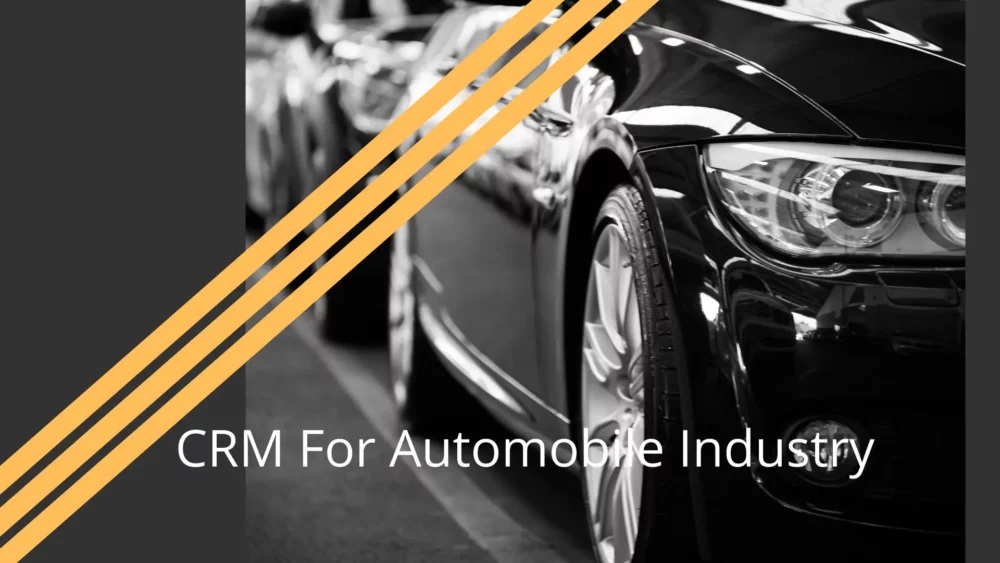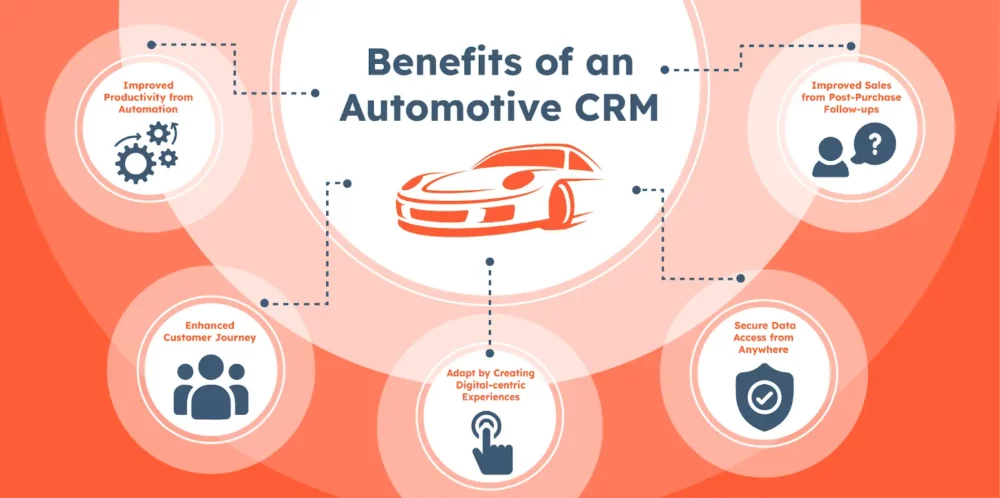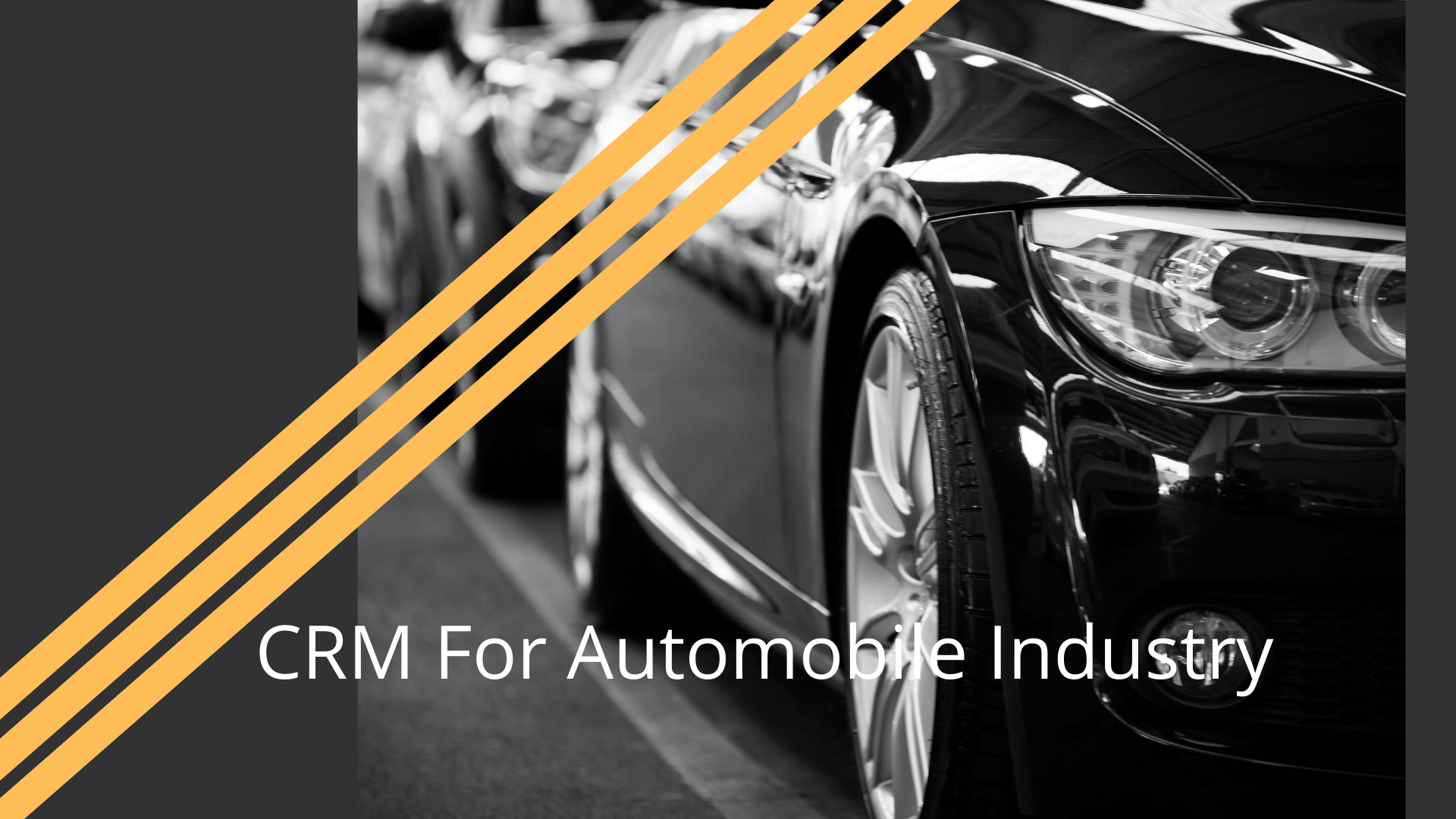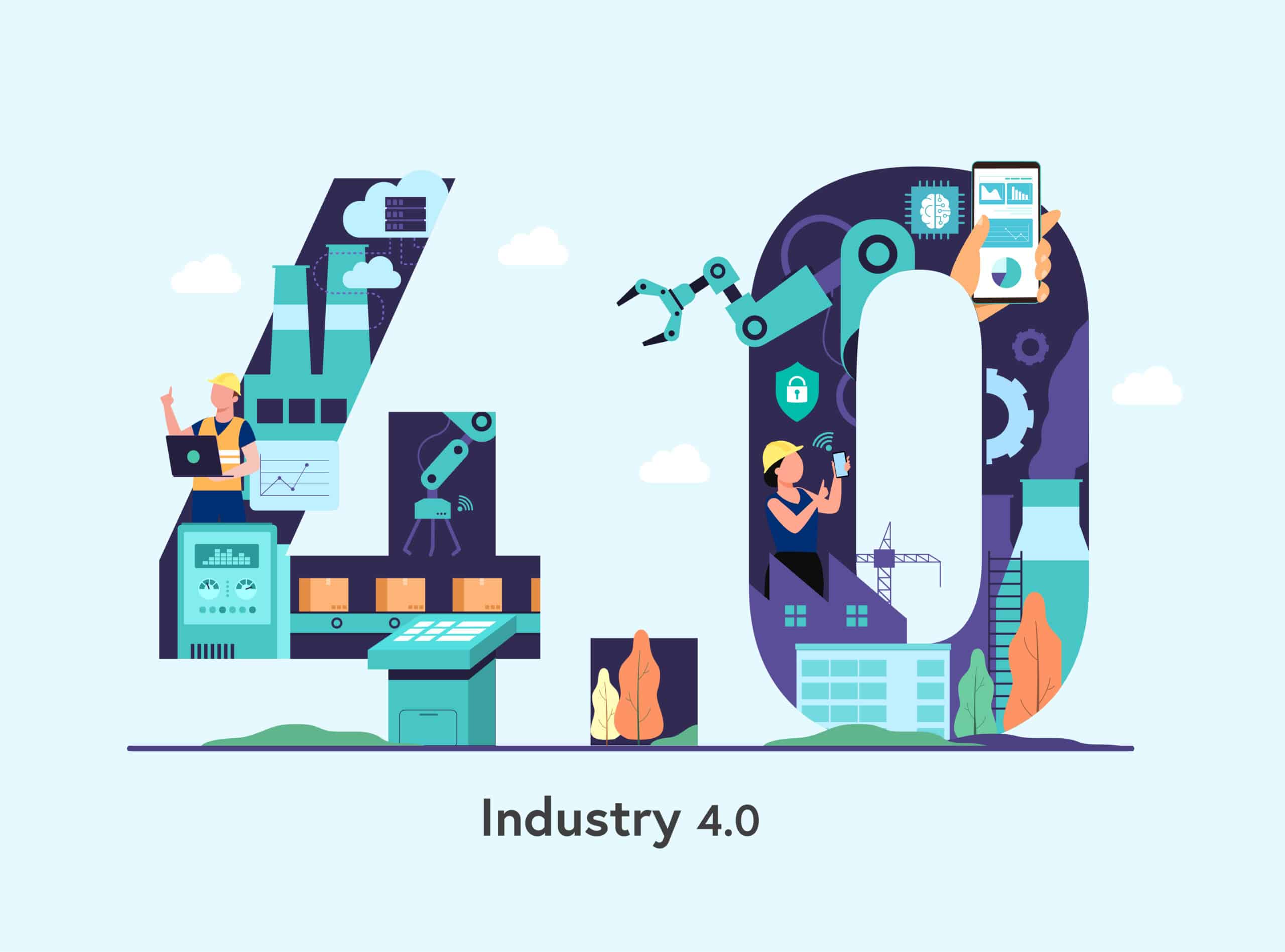In today’s highly competitive automotive industry, maintaining strong customer relationships is key to success. That’s why Customer Relationship Management (CRM) systems have become an indispensable tool for automotive businesses. In this article, I will introduce you to the world of CRM for the automotive industry and shed light on how it can revolutionize your customer relationships while driving sales.

Importance of CRM in the Automotive Sector
Imagine having a comprehensive system that allows you to manage all your customer interactions and sales processes seamlessly. That’s precisely what CRM brings to the table. By implementing a CRM system specifically designed for the automotive industry, you gain the ability to track and nurture leads effectively, resulting in higher conversion rates and increased revenue. Moreover, CRM enables you to streamline sales and marketing operations, ensuring that you never miss out on potential opportunities.
How CRM Enhances Customer Relationships and Boosts Sales
CRM acts as a central hub for all customer-related information, providing you with a holistic view of each individual’s preferences, purchase history, and service requirements. With this data at your fingertips, you can personalize your interactions, anticipate customer needs, and deliver exceptional customer experiences. By understanding your customers better, you can build long-lasting relationships, foster loyalty, and generate repeat business. Additionally, CRM empowers you to proactively engage with customers throughout their ownership journey, offering timely maintenance reminders, personalized promotions, and attentive after-sales support.
Overview of CRM Solutions Tailored for the Automotive Industry
When it comes to CRM solutions, the automotive industry has unique needs and requirements. Fortunately, there are numerous CRM systems specifically designed to meet these challenges head-on. These solutions offer features such as lead management, customer database management, sales pipeline tracking, and service ticketing. Additionally, advanced analytics and reporting capabilities enable you to gain valuable insights into your sales performance, identify trends, and make data-driven decisions.
In the following sections, we will dive deeper into the benefits of CRM for the automotive industry, explore the key features of automotive CRM software, and discuss best practices for successful implementation. Join me as we embark on a journey to harness the power of CRM and drive success in the automotive sector.
Benefits of CRM for the Automotive Industry

In the fast-paced and highly competitive automotive industry, leveraging a CRM system can provide a multitude of benefits that have a direct impact on your business’s success. Let’s delve into some of the key advantages that CRM brings to the automotive sector.
Streamlining Sales and Marketing Processes
A well-implemented CRM system streamlines your sales and marketing operations, ensuring a seamless flow of information and reducing manual administrative tasks. By automating lead management, you can efficiently track and nurture potential customers, minimizing the risk of missed opportunities. CRM also enables effective campaign management, allowing you to target specific customer segments with personalized messaging, resulting in higher conversion rates and improved ROI on marketing efforts.
Improving Customer Satisfaction and Retention Rates
One of the core objectives of CRM is to enhance customer satisfaction by providing exceptional experiences at every touchpoint. With a comprehensive view of customer data, you can offer personalized interactions, tailored offers, and proactive support. By anticipating customer needs and delivering timely service reminders, you can foster loyalty and boost customer retention rates. Satisfied customers are more likely to become brand advocates, spreading positive word-of-mouth and attracting new business.
Enhancing Communication and Collaboration within the Organization
CRM systems promote effective communication and collaboration within your organization, breaking down information silos and enabling cross-functional teamwork. With a centralized database, sales, marketing, and service teams can access real-time customer information, ensuring consistent messaging and a unified customer experience. By sharing customer insights and feedback, teams can work together to identify and address pain points, enhancing overall customer satisfaction and driving business growth.
In the upcoming sections, we will explore the key features of CRM software tailored for the automotive industry, providing you with a deeper understanding of how these tools can transform your operations. Stay tuned as we uncover the secrets to unlocking your automotive business’s full potential with CRM.
Key Features of CRM Software for the Automotive Industry
When it comes to CRM software tailored specifically for the automotive industry, there are several key features that are essential for optimizing customer relationships and driving sales. Let’s explore these features in detail:
Lead Management and Tracking
A robust CRM system allows you to effectively manage and track leads throughout the entire sales process. From capturing leads through various channels, such as online inquiries or test drives, to assigning them to sales representatives, CRM ensures that no potential opportunity slips through the cracks. With lead management and tracking features, you can prioritize leads, automate follow-ups, and monitor progress, enabling your sales team to focus on converting leads into satisfied customers.
Customer Database and Contact Management
Maintaining an organized and up-to-date customer database is crucial for providing personalized experiences and targeted marketing campaigns. CRM software for the automotive industry provides a centralized repository where you can store and manage customer information effectively. This includes contact details, vehicle preferences, service history, and more. With the ability to easily access and update customer records, you can deliver tailored communications, anticipate customer needs, and build stronger relationships.
Sales Pipeline Management
Managing your sales pipeline efficiently is vital for maximizing revenue and ensuring a smooth sales process. CRM solutions offer features that allow you to visualize and track each stage of the sales pipeline, from initial contact to final purchase. This enables you to identify bottlenecks, prioritize deals, and allocate resources effectively. By having a clear overview of your sales pipeline, you can forecast sales, identify potential upselling opportunities, and make informed decisions to drive revenue growth.
Service and Support Ticketing
In the automotive industry, providing exceptional customer service is crucial for building brand loyalty and customer satisfaction. CRM software with service and support ticketing capabilities allows you to efficiently handle customer inquiries, requests, and complaints. By creating service tickets, assigning them to the appropriate team members, and tracking their progress, you can ensure timely resolution and exceed customer expectations. This feature helps you streamline your service operations and deliver a seamless customer experience.
Analytics and Reporting Capabilities

To make data-driven decisions and continuously improve your sales and marketing strategies, CRM software provides robust analytics and reporting capabilities. These features enable you to generate insightful reports, track key performance indicators (KPIs), and measure the effectiveness of your campaigns. By analyzing customer behavior, sales trends, and revenue metrics, you can identify areas for improvement, optimize your processes, and drive better business outcomes.
In the next section, we will delve into best practices for implementing CRM in the automotive sector, ensuring a successful integration and adoption process. Stay tuned as we unravel the secrets to harnessing the full potential of CRM for your automotive business.
Best Practices for Implementing CRM in the Automotive Sector
Implementing a CRM system in the automotive sector requires careful planning and execution to ensure its effectiveness and maximize its potential. Here are some best practices to consider when integrating CRM into your automotive business:
Assessing Specific Needs and Requirements
Before selecting a CRM system, it’s essential to assess your specific needs and requirements. Consider factors such as the size of your business, the complexity of your sales processes, and the desired level of automation. Identify the key pain points and challenges you want to address with CRM. This evaluation will help you choose a system that aligns with your goals and caters to your unique business needs.
Selecting the Right CRM System
With a plethora of CRM systems available, selecting the right one can be overwhelming. Take the time to research and evaluate different CRM solutions tailored for the automotive industry. Look for features that match your specific requirements, such as lead management, pipeline tracking, and service ticketing. Consider factors like user-friendliness, scalability, and integration capabilities. It’s also crucial to choose a reputable CRM vendor known for their expertise in the automotive sector.
Training Staff and Ensuring Adoption
The success of CRM implementation depends on the adoption and proficient use of the system by your staff. Provide comprehensive training to your employees to familiarize them with the CRM software and its features. Emphasize the benefits and value that CRM brings to their roles and the overall organization. Encourage open communication and address any concerns or resistance to change. Regularly monitor usage and provide ongoing support to ensure maximum adoption and utilization.
Integrating CRM with Existing Systems
To fully leverage CRM’s potential, integrate it with your existing systems, such as inventory management or marketing automation tools. Seamless integration allows for the exchange of data between systems, enabling a more holistic view of customer information and enhancing efficiency. Make sure the CRM system you choose offers integration capabilities or consult with experts to establish effective integration processes.
Regularly Monitoring and Optimizing CRM Performance
Implementing CRM is not a one-time task but an ongoing process. Regularly monitor and analyze CRM performance to identify areas for improvement. Leverage the analytics and reporting capabilities of your CRM system to track key performance indicators, measure the effectiveness of your sales and marketing efforts, and make data-driven decisions. Continuously optimize your CRM processes based on feedback and changing business needs to ensure its long-term success.
By following these best practices, you can ensure a smooth and successful implementation of CRM in the automotive sector. Next, we will explore real-life case studies that demonstrate the tangible benefits of CRM for automotive businesses.
Case Studies: Successful CRM Implementation in the Automotive Industry
Example 1: XYZ Dealership’s Increased Sales and Customer Satisfaction through CRM
In the fiercely competitive automotive industry, XYZ Dealership faced the challenge of standing out from the crowd. By implementing a CRM system tailored for the automotive sector, they were able to elevate their sales performance and enhance customer satisfaction. With the CRM’s lead management capabilities, XYZ Dealership efficiently tracked and nurtured potential buyers, ensuring no opportunity slipped through the cracks. The result? A significant increase in sales conversions and revenue.
Furthermore, the CRM allowed XYZ Dealership to provide personalized experiences to their customers. By leveraging the customer database and contact management features, they gained insights into individual preferences, enabling tailored interactions and targeted marketing campaigns. This personalized approach not only fostered stronger customer relationships but also drove higher customer satisfaction and repeat business.

Example 2: ABC Manufacturer’s Improved Dealer Network Management using CRM
ABC Manufacturer, a prominent player in the automotive industry, faced the challenge of managing an extensive dealer network spread across various regions. With the implementation of a CRM system, they were able to streamline their dealer network management processes. The CRM’s sales pipeline management feature provided a centralized platform for tracking and monitoring sales activities across all dealerships, ensuring transparency and accountability.
By leveraging the CRM’s analytics and reporting capabilities, ABC Manufacturer gained valuable insights into their dealers’ performance. This data allowed them to identify top-performing dealers, areas for improvement, and emerging market trends. Armed with this knowledge, ABC Manufacturer could provide targeted support, training, and incentives to optimize their dealer network’s performance, resulting in increased sales and market share.
Example 3: PQR Service Center’s Enhanced Customer Service Experience with CRM
PQR Service Center, a renowned automotive service provider, recognized the importance of delivering exceptional customer service to differentiate themselves in the market. By implementing a CRM system, they revolutionized their customer service experience. The CRM’s service and support ticketing feature enabled PQR Service Center to efficiently manage customer inquiries, complaints, and service requests, ensuring timely and satisfactory resolutions.
With the CRM’s integrated communication tools, PQR Service Center enhanced their responsiveness to customer queries and established seamless communication channels. This improved customer satisfaction and loyalty, as customers felt heard and valued throughout their service journey. Additionally, the CRM’s analytics capabilities allowed PQR Service Center to identify service trends, areas for improvement, and opportunities for upselling, ultimately driving revenue growth.
These case studies exemplify the transformative power of CRM in the automotive industry. By leveraging CRM solutions tailored for the sector, businesses can achieve remarkable success, elevate customer relationships, and drive sales. Now, let’s explore best practices for implementing CRM in the automotive sector, ensuring a seamless transition and maximizing the benefits of this powerful tool.
Conclusion: Revolutionizing Customer Relationships and Driving Sales with CRM
In the fast-paced and competitive world of the automotive industry, building and nurturing strong customer relationships is vital. This is where Customer Relationship Management (CRM) systems come into play, offering tailored solutions that have the power to revolutionize the way automotive businesses engage with their customers and drive sales.
By implementing CRM for the automotive industry, you can streamline your sales and marketing processes, ensuring that no opportunity slips through the cracks. The ability to effectively manage and track leads, along with a centralized customer database, empowers you to deliver personalized experiences and anticipate customer needs. The result? Improved customer satisfaction, increased retention rates, and ultimately, higher revenue.
CRM software for the automotive industry offers a range of key features that cater specifically to the unique challenges and requirements of the sector. From lead management and sales pipeline tracking to service ticketing and analytics, these tools provide comprehensive solutions to enhance your operations and drive success.
To make the most of CRM, it is crucial to follow best practices for implementation. Assessing your specific needs, selecting the right CRM system, training your staff, and integrating CRM with existing systems are all steps that contribute to a successful CRM implementation. Regular monitoring and optimization of CRM performance ensure that you stay ahead of the game and continue to deliver exceptional customer experiences.
As the automotive industry evolves, so does CRM. With the integration of artificial intelligence (AI), machine learning, and the Internet of Things (IoT), the future of CRM in the automotive industry is promising. These advancements will enable predictive analytics, personalized marketing automation, and real-time data collection, further enhancing customer relationships and driving sales.

So, if you’re looking to take your automotive business to new heights, embracing CRM is the way to go. Start harnessing the power of CRM today and witness the transformative impact it can have on your customer relationships and sales. Industry.vdict.pro is here to support you on your CRM journey, providing expert guidance and innovative solutions tailored to the automotive industry.





